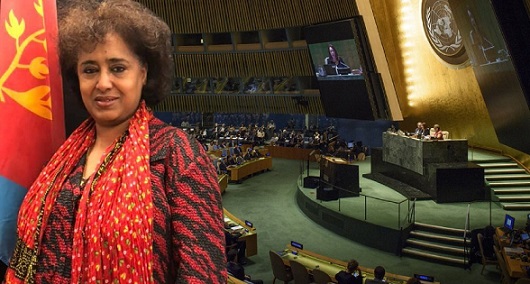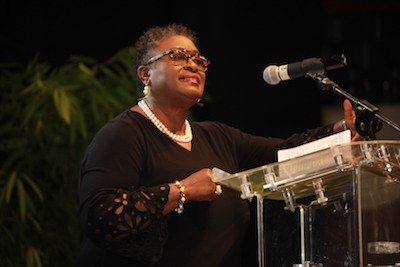|
MARCH 7, 2020
| WOMEN'S DAY - CERTAIN PROGRESS, CERTAIN OBSTACLES
|
Beijing+25 is a Conference on Women at UN Headquarters in New York and was expected to review "progress" since the conference in Beijing. A ceremonial gathering, initially planned to
launch worldwide initiatives, was curtailed. The apparent reason mentioned was Coronavirus (COVID-19), which ironically was spread from China. Member States were asked to reduce their
exposure by limiting their presence to only those serving in New York. A limited number of meetings, anyway, will have to consider whatever progress has been made until now and focus
further on obvious obstacles.
What progress remains to be examined?
"Women's Rights on Human Rights" attracted media attention. Yet much has to be done. A practical prepared report "progress" has not been fast or deep enough - in fact, certain
programs are being stalled after 25 years, and no country has fully achieved equality and empowerment for women and girls.
Influential member states made rhetorical statements, but in practice delayed practical actions. This position was openly reflected in their votes -- not only at international
conferences, but in committees on human rights. Even "UN Women," an office within the Secretariat, was not as effective or relevant as it was when first launched under the leadership of
Ms. Michelle Bachelet, who left to become president of Chile and now High Commissioner for Human Rights.
It is commonly known that the post of Secretary General was to be assigned to one of at least six outstanding female candidates with proven experience. Since he took over,
Secretary-General Antonio Guterres appointed an unprecedented number of women in senior posts. His Chef de Cabinet, Maria Luiza Ribeiro Viotti, former Ambassador of Brazil, is an
outstanding manager with a caring interest in global work. Heads of departments like Melissa Flaming of Global Communications and Catherine Pollard of Management Strategy, have
made an impressive impact in their own departments and within the UN system. Deputy Secretary-General Ms. Amina Mohamed gives the image of an impressive presence.
Briefly, while UN staff try their best to advance the cause of women within their limited scope, and while much action remains to be done within the Secretary, the focus
should be on lack of action by member states. In fact, the number of women in the position of Permanent Representative increased from 5 in the year 2000 to currently 32. Newly-appointed
ambassadors, included those from Eritrea, Lebanon, Dominica, Sri Lanka, Slovakia, Poland and others, demonstrate an "equitable geographical distribution." They have made an impressive
impact paving the way for more to be accomplished.
Beijing+25 and beyond needs more serious oversight and more practical consideration.

Eritrea Ambassador Sophia Tesfamariam Yohannes

Barbados Ambassador Henrietta Elizabeth Thompson

Ghana Ambassador Martha Ama Akyaa Pobee

Italy Ambassador Maria Angela Zappia

Greece Ambassador Maria Theofili

Lebanon Ambassador Amal Mudallali

Sri Lanka Ambassador Kshenuka Dhireni Senewiratne

Poland Ambassador Joanna Wronecka

Norway Ambassador Mona Juul

Rwanda Ambassador Valentine Rugwabiza

United Kingdom Ambassador Karen Pierce

United States Ambassador Kelly Craft
|

